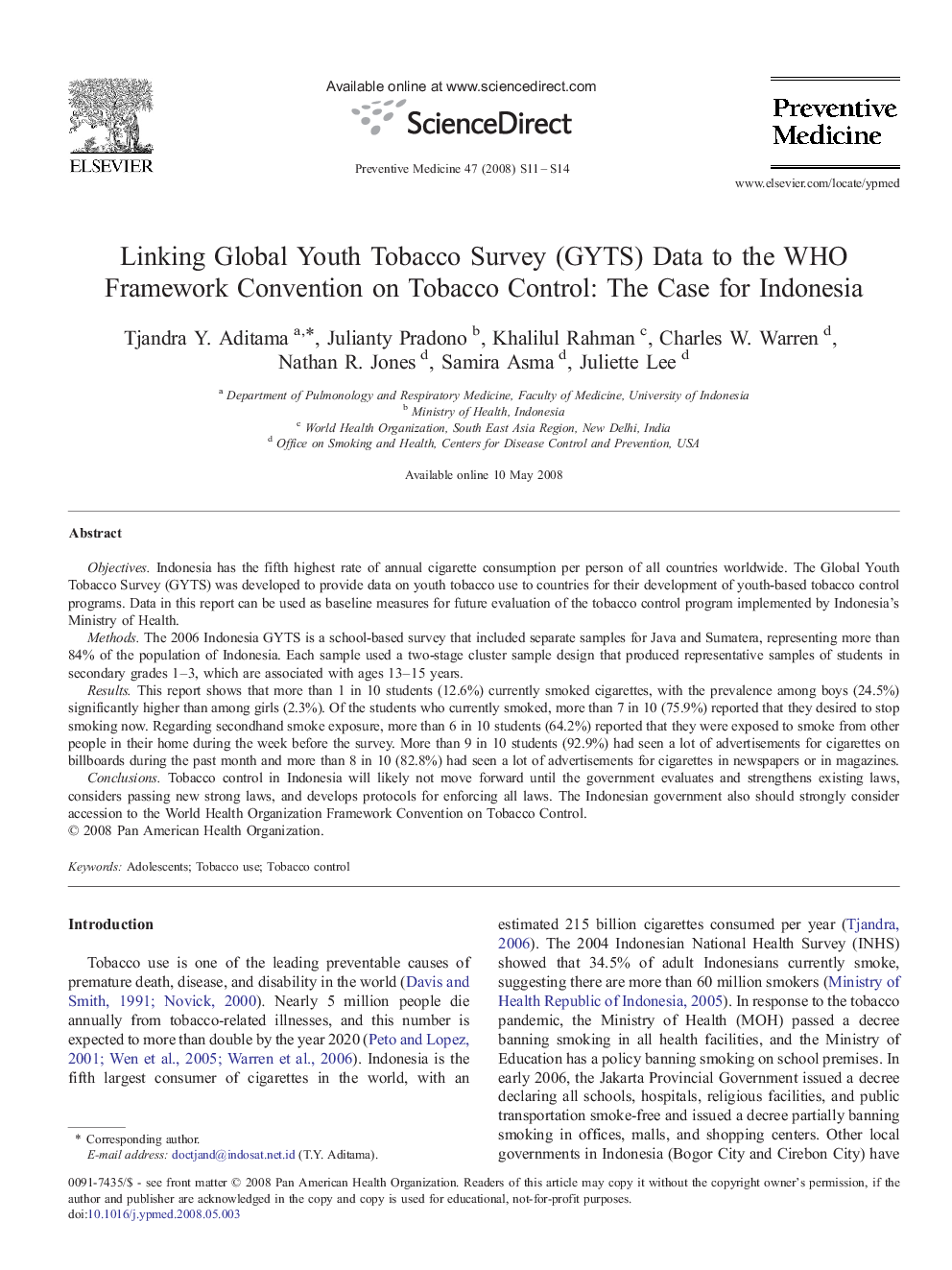| کد مقاله | کد نشریه | سال انتشار | مقاله انگلیسی | نسخه تمام متن |
|---|---|---|---|---|
| 3101667 | 1191263 | 2008 | 4 صفحه PDF | دانلود رایگان |

ObjectivesIndonesia has the fifth highest rate of annual cigarette consumption per person of all countries worldwide. The Global Youth Tobacco Survey (GYTS) was developed to provide data on youth tobacco use to countries for their development of youth-based tobacco control programs. Data in this report can be used as baseline measures for future evaluation of the tobacco control program implemented by Indonesia's Ministry of Health.MethodsThe 2006 Indonesia GYTS is a school-based survey that included separate samples for Java and Sumatera, representing more than 84% of the population of Indonesia. Each sample used a two-stage cluster sample design that produced representative samples of students in secondary grades 1–3, which are associated with ages 13–15 years.ResultsThis report shows that more than 1 in 10 students (12.6%) currently smoked cigarettes, with the prevalence among boys (24.5%) significantly higher than among girls (2.3%). Of the students who currently smoked, more than 7 in 10 (75.9%) reported that they desired to stop smoking now. Regarding secondhand smoke exposure, more than 6 in 10 students (64.2%) reported that they were exposed to smoke from other people in their home during the week before the survey. More than 9 in 10 students (92.9%) had seen a lot of advertisements for cigarettes on billboards during the past month and more than 8 in 10 (82.8%) had seen a lot of advertisements for cigarettes in newspapers or in magazines.ConclusionsTobacco control in Indonesia will likely not move forward until the government evaluates and strengthens existing laws, considers passing new strong laws, and develops protocols for enforcing all laws. The Indonesian government also should strongly consider accession to the World Health Organization Framework Convention on Tobacco Control.
Journal: Preventive Medicine - Volume 47, Supplement 1, September 2008, Pages S11–S14